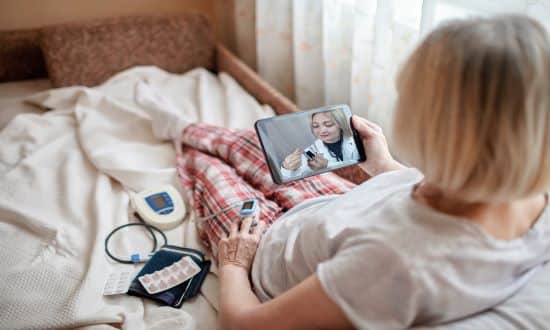Doccla acquires OTH in bid to become Europe’s leading virtual hospital
- 22 August 2023

Virtual ward technology provider Doccla has acquired medically certified cloud-based platform OpenTeleHealth (OTH) in a transaction that expands Doccla’s global presence, and extends its operations to 12 new markets, supporting co-founder and CEO Dag Larsson’s claim that the company is now Europe’s “leading virtual hospital”.
Since its founding in 2019, Doccla has rapidly become a leading virtual ward provider to the NHS and is now present within dozens of NHS trusts, and in one in three integrated care boards (ICBs).
The acquisition means Doccla now has clients in 13 countries (10 in Europe), with almost 10,000 patients under active monitoring. Outside of Europe, Doccla is now present in Singapore, also through the acquisition.
It is a significant step for Doccla and marks the point at which the company progresses to become Europe’s virtual hospital. Notably, Doccla will immediately work with existing OTH clients, which include Siemens Healthineers in Scandinavia and TeleCare North – the biggest telehealth programme in Denmark, established in 2013.
OTH Founder and CEO Henrik Ledgaard Ibsen said: “OTH was founded to demonstrate the effectiveness of large-scale remote health management – something we have proved time and time again in our decade of operations. We have worked closely with Doccla for several years and the acquisition was a natural next step.”
Fulfilling a key NHS goal
Establishing and extending virtual wards is a central goal for the NHS in order to relieve the pressures on acute services caused in part by unfilled staff vacancies and an increase in ill-health in the population following the COVID-19 pandemic. In January, the government said it would scale up virtual wards with an ambition to treat up to 50,000 a month and expand their use for falls and frail patients.
Doccla’s virtual ward technology is designed to keep patients at home and out of hospital, whilst still being closely digitally monitored by healthcare professionals. Patients receiving care through the virtual ward service are given a tailor-made box of equipment, which includes a pre-configured smartphone. The box also includes wearable medical devices that, depending on a person’s needs, can measure heart rate, respiration rate, body temperature, blood oxygen levels, blood pressure and a range of other vital signs. The Doccla system covers over 40 clinical pathways and can be deployed within a few weeks.
In an analysis of the virtual care market for Digital Health Intelligence, independent analyst Lloyd Price observed that some major players, including BT Health and Cisco, are delivering solutions to the NHS that include video and phone consultations and remote monitoring. Where Doccla provides additional value, he says, is in its provision of a “complete cloud hosted virtual ward service” with in-house clinicians, allowing it to deploy in both large acute and community settings within the NHS.
“We like to say that it’s an end-to-end virtual ward service that includes a tremendous amount of service,” co-founder Martin Ratz told Digital Health News on the sidelines of the June 2023 NHS Confederation conference in Manchester. Ratz described the Doccla monitoring team as a “mission control centre” that encompasses senior nurses, doctors and specialists.
As the first UK virtual ward provider registered with the Care Quality Commission (CQC), the independent regulator of health and social care in England, Doccla is regulated the same as any hospital or GP practice. As a result, the company uses its own team of clinicians to support healthcare workers, providing additional capacity and care for patients.
“By employing their own clinical staff, Doccla are able to directly address one of the most common operational issues with virtual care, ‘remote monitoring false alarms’”, Price said. When a patient’s health score or other indicator is outside normal limits due to factors not directly related to their health, he said, “Doccla can filter out these signals by having their clinical staff contact the patient to check whether the alarm is genuine on their system before NHS staff need to respond to it.”
The company says it has a patient compliance rate of over 95% and an independently verified saving for the NHS of £3 for every £1 spent on Doccla.
Founder’s illness spurred interest in monitoring technology
Launched in the UK during the pandemic, Doccla was created after Ratz unexpectedly suffered a heart attack, and realised the immense benefits of virtual ward and monitoring technology to patients and healthcare systems. Since then, the company has already saved thousands of bed days for the NHS and has achieved a 29% reduction in emergency admissions and a 20% reduction in A&E attendance for client health trusts.
Identifying clinical champions to help Doccla implement its solutions and flag suitable patients is key to its success, the company’s chief medical officer Greg Edwards told Digital Health News.
“The challenge is that [virtual wards] require change management and a change of behaviour.” He added that clinical champions “need support in order to make that change and in order to refer patients”.
Patients have welcomed the service, with 99% rating the service as good or very good, the company says.




